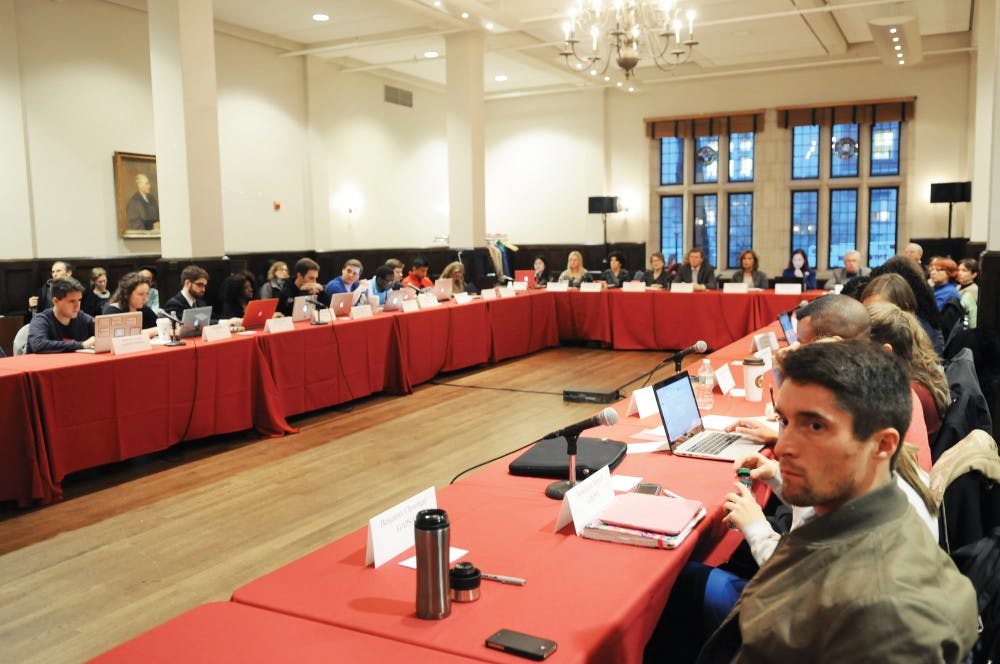
The Undergraduate Assembly passed an Election Eligibility Resolution on Jan. 29 that would ensure that members of the organization, once elected, would serve the full one-year term, after nine out of 35 elected representatives this year resigned before the end of their term.
But the resolution was not implemented by the Nominations and Elections Committee.
The resolution was brought forth after members of the UA recognized a need to address the trend of people leaving before their terms were up. Reflecting on the past year, members noted that not every member served the full one-year term required by those involved with the organization. Two of the nine who resigned were serving as first-time elected members of the UA.
“The thought process was that this resolution would make it clear that it is a full one-year commitment,” President of the UA and College senior Kat McKay said.
McKay added that the organization prides itself on the proportionate representation of its constituent groups and feels that inconsistent membership would impact the UA’s ability to work on initiatives on behalf of the students.
“A lot of people run without a firm grasp of what the UA means,” she said. “This is so they’re not surprised that it’s X number of hours of work.”
The resolution passed in the UA, which served to direct the Nominations and Elections Committee to consider adapting the resolution into the Fair Practices Code, the document used to govern elections. The resolution stated that any member who resigns from his or her position would no longer be eligible for the next UA election session.
However, the NEC felt that there might be better alternatives.
“We felt this wasn’t the best way to go about it,” Vice-Chair of Elections and College junior Allie Rubin said.
While both organizations are in the process of finding another approach to address the issue of member retention, no alternative has yet been finalized. The resolution was aimed at highlighting factors that would limit the time a person serves as a representative of a constituent group in the organization.
“If, for example, students are considering study abroad, they shouldn’t consider running, because of a lack of eligibility,” Rubin said.
Rubin and McKay added that the “candidate package is changing” and would include several “checkpoints” to make clear what a candidate’s position on the UA would entail.
NEC Chair and College senior David Scollan stated that, for the most part, those who decide to discontinue their term on a student government body are upperclassmen.
“When we do have people hop off, it’s upperclassmen because priorities change,” Scollan said.
McKay agreed, adding that it was normal for this to happen.
“You evaluate your priorities,” McKay said. “It’s natural to choose among the things you start with. Some you continue, and some not.”
The Daily Pennsylvanian is an independent, student-run newspaper. Please consider making a donation to support the coverage that shapes the University. Your generosity ensures a future of strong journalism at Penn.
Donate




